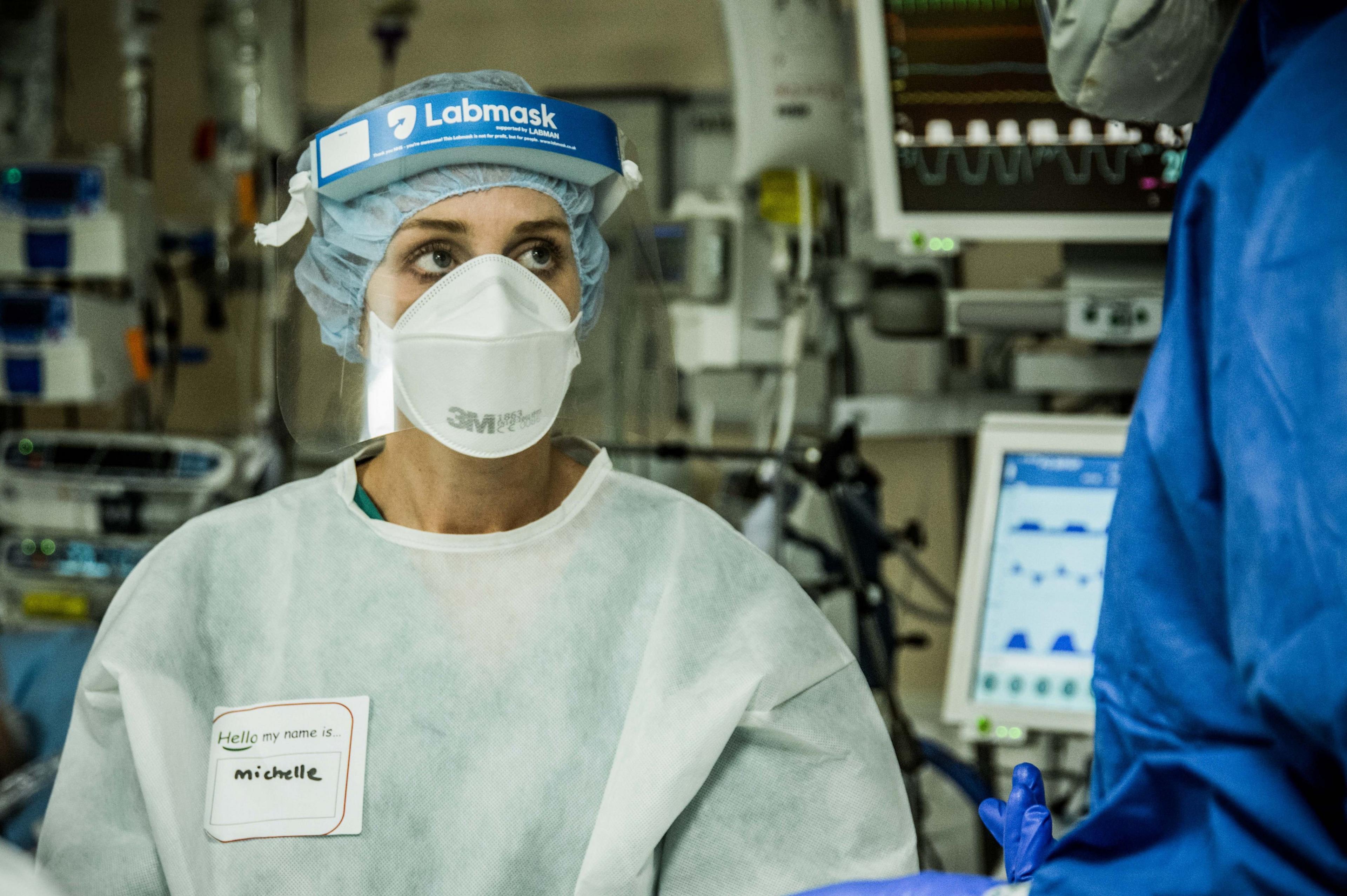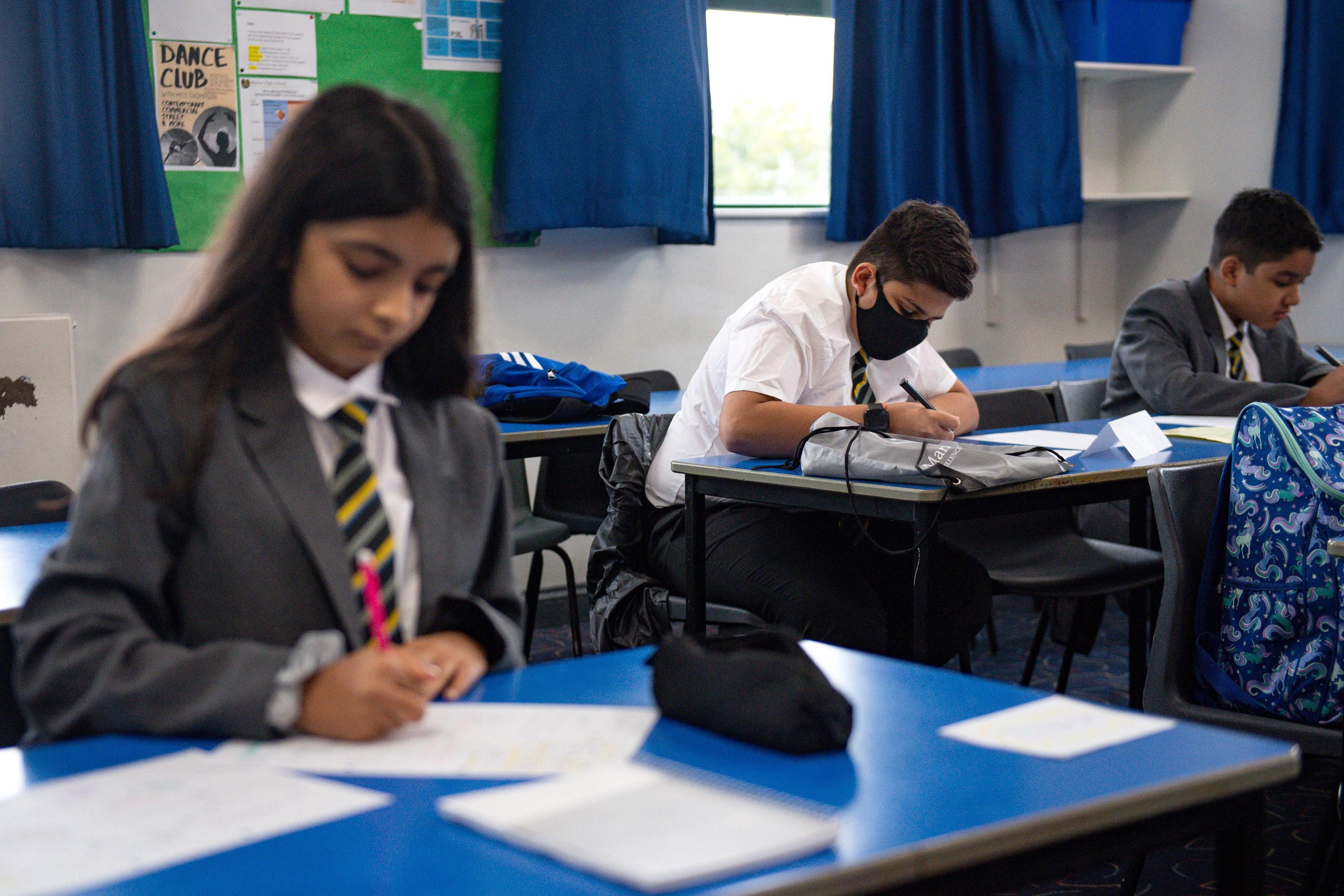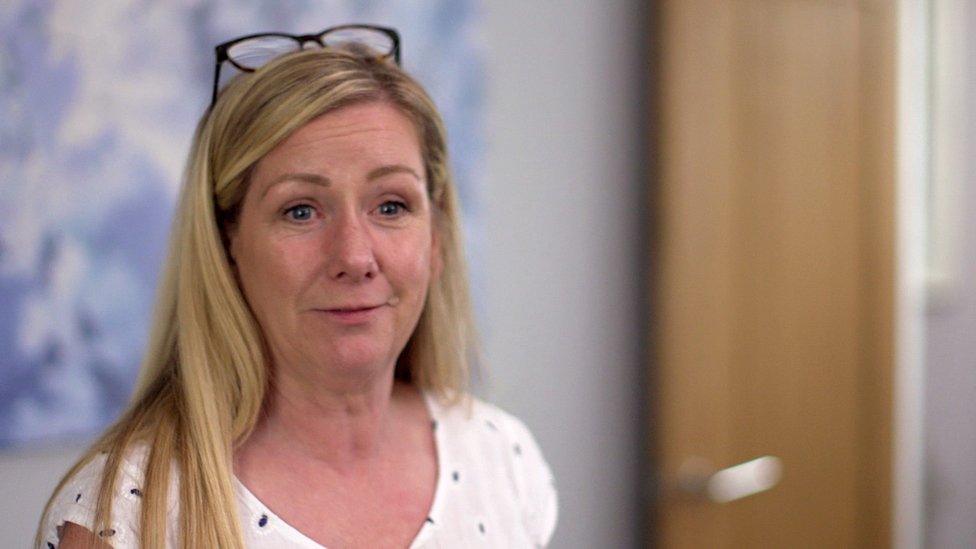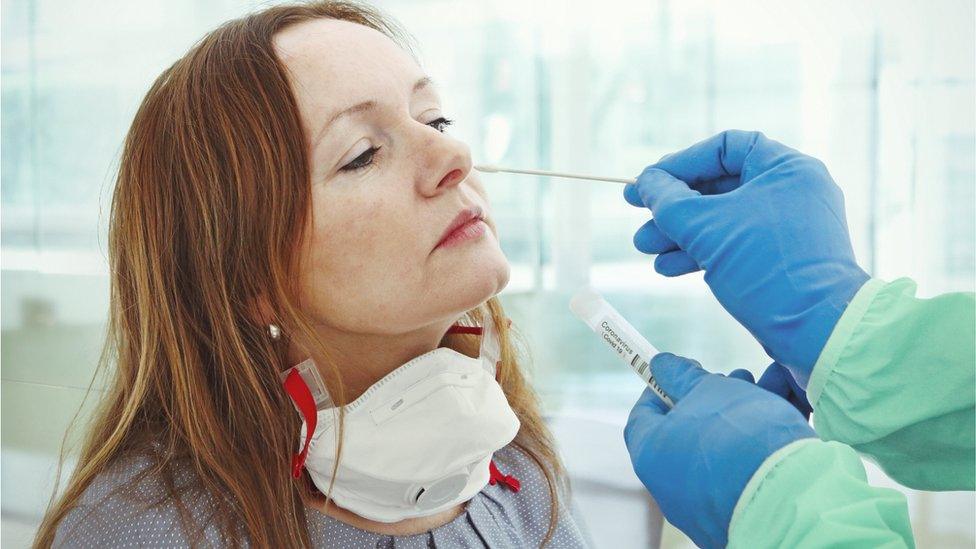Coronavirus: Winter plans revealed in leaked Sage report
- Published

A leaked government report suggests a "reasonable worst case scenario" of 85,000 deaths across the UK this winter due to Covid-19.
The document also says while more restrictions could be re-introduced, schools would likely remain open.
But it says the report "is a scenario, not a prediction" and the data are subject to "significant uncertainty".
However some are critical of the modelling and say some of it is already out of date.
The document, which has been seen by BBC Newsnight, was prepared for the government by the Sage scientific advisory group, which aims to help the NHS and local authorities plan services, such as mortuaries and burial services, for the winter months ahead.
Among its key assumptions are that schools will remain open and that the government's tracing, isolation, and quarantine measures will only be 40% effective in cutting the spread of Covid outside households.
It also states that by November "policy measures would be put in place to reduce non-household contacts to half of their normal pre March 2020 levels". In other words, restrictions to mitigate the impact - other than school closures - could be put in place.
According to the report these measures might be expected to remain in place until March 2021.
The model attempts to calculate excess deaths in England and Wales between July 2020 to March 2021. These are deaths over and above what would normally be expected during that period and are based on ONS data.
The model has been adjusted to account for people who would have been expected to die because they have other illnesses.
It said in England and Wales there could be 81,000 excess deaths due to Covid, plus 27,000 excess deaths from non-Covid causes.
In Scotland there could be 2,600 direct Covid deaths, and 1,900 in Northern Ireland.
In addition to excess deaths, the model also suggests how many people may need hospital treatment between November and March, including intensive care.
The figures, which the scientists say have a wide range of uncertainty, suggest around 2.4% of infected people could be hospitalised (range: 0.0%-8.9%) with 20.5% of hospitalised patients going into ICU (range: 1.5% - 35.25) and 23.3% (range: 1.2% - 43.3%) of all hospitalised patients dying.
The model also predicts an overall infection fatality ratio of 0.7% (0.0% - 9.7%).

The document suggests that while further lockdowns could be introduced, schools would remain open.
While the model is by no means a prediction and subject to "significant uncertainty", the reasonable worst case scenario is used to inform government planning decisions.
However, some are critical of the modelling and believe some of the assumptions in the "official sensitive" model prepared for the Cabinet Office are wrong and the model is unhelpful given the wide range in possible scenarios.
Prof Carl Heneghan, from Oxford University, said some of the assumptions made in the model were "implausible" and that the report assumes that "we've learnt nothing from the first wave of this disease".
BBC Newsnight has also spoken to people in local authorities planning who say the wide range of possibilities in deaths and hospitalisations make it hard to know if Covid-19 will have little impact or lead to catastrophic extra pressures in the months to come.
Nigel Edwards, chief executive of the Nuffield Trust health think tank, said the report had "very wide ranges" of scenarios which make it "quite difficult for people to work out exactly what they should be doing".
'Unhelpful' model
Prof Heneghan said these centralised big picture models were "unhelpful" and better local surveillance data was needed.
This is not the first "worst case scenario" provided by the government's experts.
Last month a report, requested by the UK's chief scientific adviser, Sir Patrick Vallance, suggested there might be about 120,000 new coronavirus deaths in a second wave of infections this winter,
In response to Friday's leaked report, a UK government spokesperson said: "As a responsible government we have been planning and continue to prepare for a wide range of scenarios, including the reasonable worst case scenario.
"Our planning is not a forecast or prediction of what will happen. It reflects a responsible government ensuring we are ready for all eventualities."
A spokesperson further stated that planning assumptions were being kept under review and amended as the scientific and medical advice on Covid-19 develops.
There have been more than 330,000 confirmed cases of coronavirus so far in the UK and more than 40,000 people have died.
You can watch Newsnight on BBC Two at 22:30 on weekdays. Catch up on iPlayer, subscribe to the programme on YouTube, external and follow it on Twitter, external.
- Published5 July 2023

- Published28 August 2020

- Published14 August 2020
